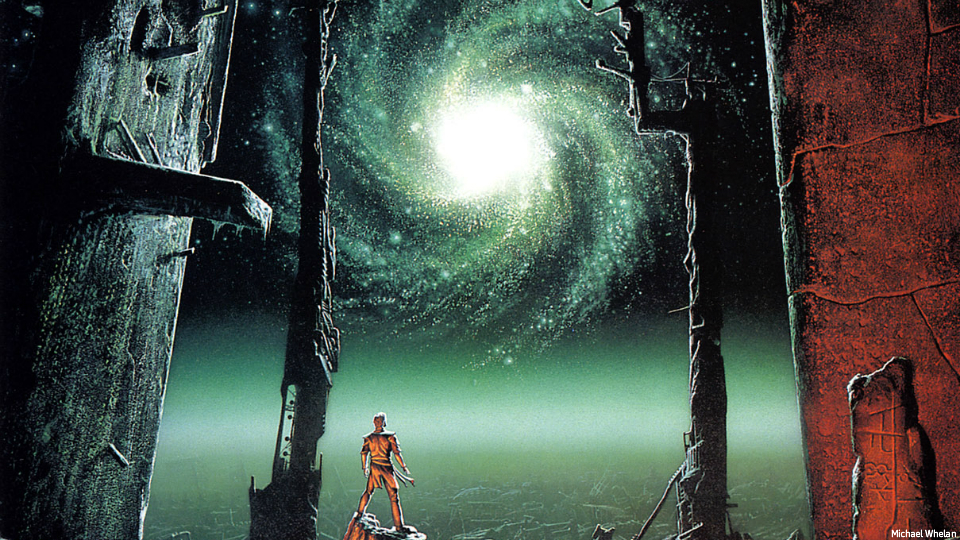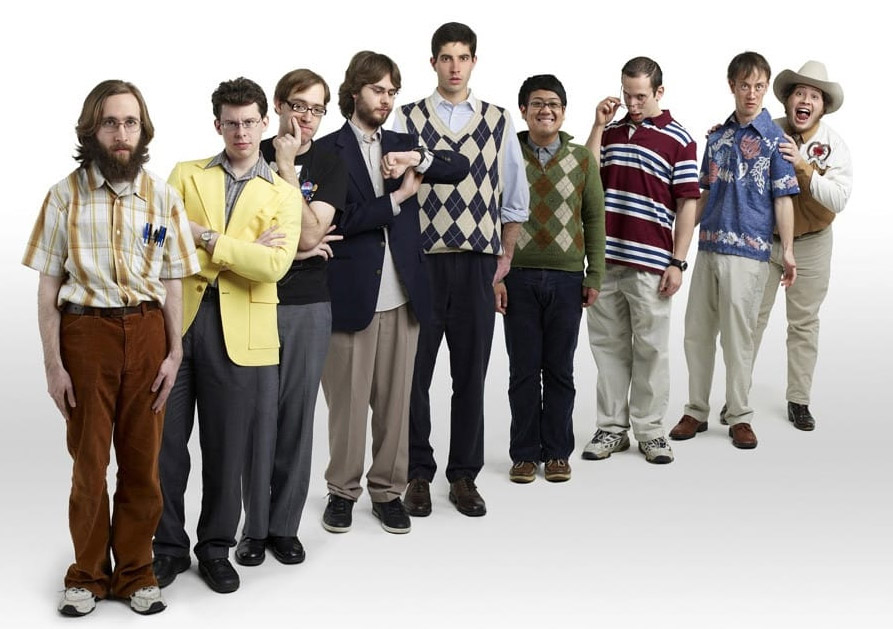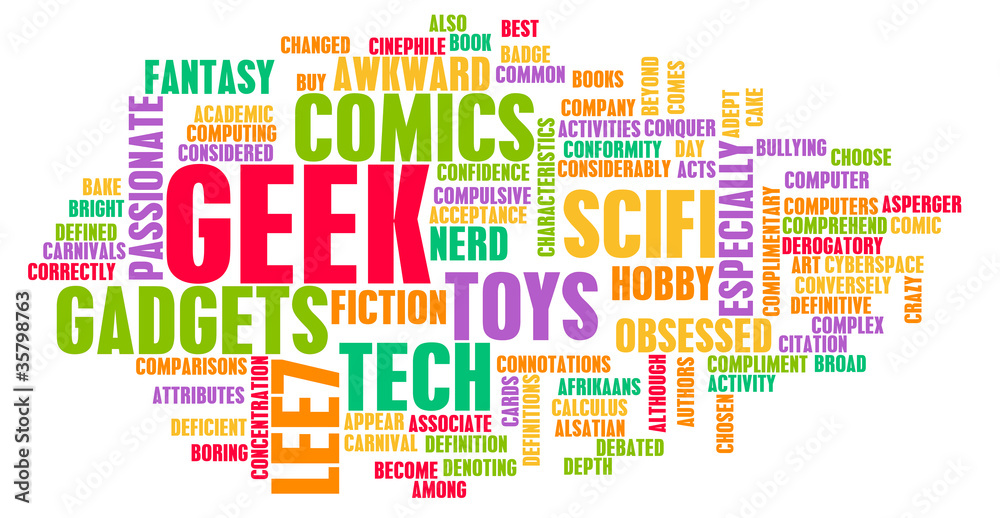The Foundations of Geek Culture

To understand the present-day influence of geek culture, it’s essential to look at its roots. Traditionally, geek culture was associated with interests considered “outsider” or non-mainstream. These interests, like comic books, video games, science fiction, and technology, were often dismissed as overly niche or only for those who were socially awkward or highly intellectual. Over time, however, the interests of the “geek” community have evolved from subcultural curiosities into significant aspects of mainstream society.
The Historical Evolution of Geek Interests
Geek culture began as a form of social divergence, where those with deep passions for science, technology, or niche entertainment found solace in their communities. From the comic book fandom of the early 20th century to the Star Wars phenomenon in the late 1970s, geek culture developed its own language, values, and practices. These early “geeks” shared their love for storytelling, imagination, and scientific curiosity, setting the foundation for what would become a thriving cultural movement.
The Internet’s Role in Expanding Geek Culture
The growth of the internet in the 1990s and 2000s was transformative for geek culture. The internet provided a platform for people with similar interests to connect, discuss, and share their passions. Online forums, blogs, and early social media platforms allowed geek communities to expand rapidly, bringing together like-minded individuals worldwide. With this digital connectivity, previously niche communities gained significant visibility, allowing geek culture to grow into the influential force it is today.
Geek Culture’s Influence on Mainstream Entertainment
One of the most significant indicators of geek culture’s rise is its influence on mainstream entertainment. Today, genres like superhero films, fantasy, and sci-fi dominate the box office, while video games and anime have grown into global phenomena. Geek culture’s impact on entertainment is not just visible in media but also in the growing acceptance of traditionally “geeky” pastimes as mainstream hobbies.
Superheroes and Fantasy on the Big Screen
The popularity of superhero movies, particularly the success of franchises like Marvel and DC, illustrates how geek culture has transformed entertainment. Once considered niche, superheroes have become some of the most profitable icons in modern media. Movies like Avengers: Endgame and The Dark Knight have not only broken box-office records but have also brought comic book characters into the hearts of audiences of all ages. This widespread appeal has helped dismantle stereotypes around geek interests, showing that fandoms once deemed “for geeks” are universally enjoyable.
The Rise of Anime and Video Games
Anime and video games, once viewed as hobbies exclusive to specific subcultures, have exploded in popularity. Video games are now a multi-billion-dollar industry, and streaming platforms have brought anime to audiences worldwide. Shows like Attack on Titan and games like The Legend of Zelda have attracted massive followings and earned critical acclaim. This surge in popularity has shown that geek culture is more than a trend; it’s a lasting shift in entertainment that appeals to people from all walks of life.
The Intersection of Technology and Geek Culture

Geek culture and technology have long been intertwined, as many “geeks” were early adopters of technological innovations. Today, technology remains central to geek culture, shaping the way fans engage with media and with each other. From streaming services and virtual reality to social media fandoms, technology has both supported and accelerated the spread of geek interests in modern society.
Social Media Fandoms
Social media platforms like Twitter, Instagram, and Reddit have enabled geek communities to thrive and grow at an unprecedented rate. Fans can easily share fan art, theories, and news with each other, fostering a strong sense of community across the globe. The ease of creating fan pages, joining groups, and participating in live discussions has brought people together in ways that were previously impossible. Social media has allowed geek culture to become a part of daily life, making fan communities more accessible and mainstream.
The Role of Streaming Services
Streaming platforms like Netflix, Hulu, and Crunchyroll have played a significant role in popularizing geek media. They offer easy access to anime, sci-fi shows, and superhero movies, making it easier for people to explore geek culture. Streaming services have increased the visibility of niche genres and made it more convenient to follow shows and movies that might not be available in local theaters. By providing greater access to diverse content, streaming platforms have helped bridge the gap between niche geek interests and mainstream audiences.
Geekzilla Tio Geek The Cultural Impact
Geek culture, often dubbed “geekzilla tio geek,” has had a profound impact on cultural values and social identity. What was once perceived as a fringe interest has evolved into a celebrated and mainstream lifestyle. This rise has reshaped cultural norms, influencing everything from fashion to social relationships and identity.
Changing Perceptions and Breaking Stereotypes
As geek culture has become more mainstream, society’s perception of “geeks” has shifted dramatically. Gone are the days when “geek” was used solely as an insult. Today, being a “geek” signifies passion, knowledge, and community. People of all ages and backgrounds proudly identify as geeks, whether they’re passionate about video games, comic books, or tech innovation. This shift has led to a reevaluation of what it means to be a fan and has broken down stereotypes about intelligence, social skills, and identity.
Geek Culture and Identity
Geek culture has also become a means of self-expression and identity for many. Fandoms offer a place where people can connect with others who share their passions, creating friendships and even lifelong bonds. Conventions like Comic-Con and events like video game tournaments serve as gathering places where fans can celebrate their shared interests. The rise of geek culture has given many individuals a sense of belonging, allowing them to explore and express their interests openly and without judgment.
The Economic Power of Geek Culture

With geek culture’s rise in popularity, it has also proven to be a significant economic force. From blockbuster movies and merchandise to conventions and video games, geek culture has created profitable markets across various industries.
The Growth of Merchandise and Collectibles
Merchandising has become an essential aspect of geek culture. Fans can now purchase a wide array of products, from clothing and posters to high-end collectibles. The demand for these items has created a thriving market, with fans eager to show their loyalty to their favorite franchises. This rise in merchandising demonstrates how geek culture has evolved from a niche interest to a major consumer force, generating billions of dollars each year.
Conventions and Community Events
Conventions such as Comic-Con, Anime Expo, and gaming conventions have grown significantly, attracting hundreds of thousands of attendees each year. These events allow fans to interact with each other, meet creators, and immerse themselves in their favorite worlds. Conventions have also become a space for companies to promote new products, movies, and games, highlighting the commercial value of geek culture. These gatherings demonstrate the power of community and the economic potential of fandom.
Looking Ahead: The Future of Geek Culture
The rise of geek culture shows no signs of slowing down, and its influence on society continues to grow. As technology advances and new media platforms emerge, geek culture will likely adapt and expand further. With the acceptance and celebration of geek interests now deeply embedded in modern society, the future promises even greater integration of geek culture into daily life.
Inclusivity and Diversity in Fandom
As geek culture grows, there is an increasing emphasis on inclusivity and representation within fandoms. Today’s fans are more diverse than ever, and creators are responding by including more diverse characters, stories, and perspectives. This shift is important for the future of geek culture, ensuring that fandoms remain open, welcoming, and reflective of society’s diversity.
Expanding Influence Across Global Culture
With its global appeal, geek culture is also influencing cultures worldwide. The blending of American comic book heroes, Japanese anime, and other international elements is creating a shared global culture of fandom. This interconnectedness not only strengthens geek culture but also fosters cross-cultural understanding and appreciation, showing that geek culture is more than a trend—it’s a lasting global phenomenon.
The rise of geek culture has reshaped society’s understanding of fandom, identity, and entertainment. From “geekzilla tio geek” to global communities united by shared passions, geek culture represents a shift towards celebrating curiosity, passion, and creativity. With its continued influence and integration into various aspects of daily life, geek culture has moved beyond a cultural movement to become a defining feature of modern society.

